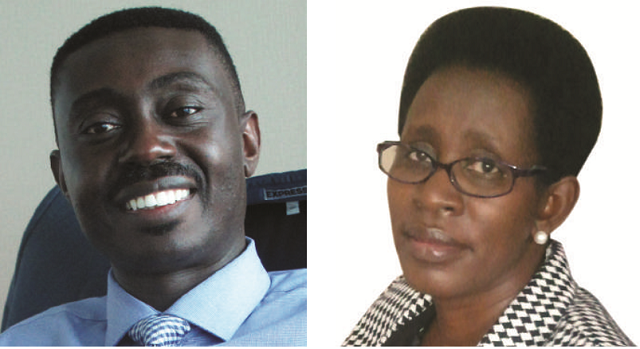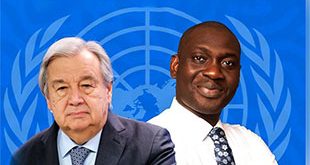
President Yoweri Museveni’s recent reshuffle of Permanent Secretaries is the latest sign of his ad hoc way of appointing government officials which experts warn is detrimental to public service.Museveni on Nov. 04 reshuffled permanent secretaries, dismissing some of the longest serving permanent secretaries and transferring others.
Prominent among those removed from their positions are Fred Kabagambe-Kaliisa who has been PS Ministry of Energy for over 20 years, James Mugume who has been in Foreign affairs, Asuman Lukwago from Ministry of Health, Stephen Kagoda who has been in Internal Affairs and Jimmy Pat Samanya from Information Communication Technology.
Kabagambe-Kaliisa was replaced by Stephen Ishabalija who has been the board chair of the Uganda Electricity Generation Company (UEGCL), Patrick Mugoya who has been PS Ministry of Tourism replaced Mugume, BenonMutambi who has been the CEO of the Electricity Regulatory Authority (ERA) replaced Kagoda while Samanya was replaced by former West Bunya MP Vincent Waiswa Bagiire.
Former State House official Diana Atwine was appointed PS ministry of Health replacing Asuman Lukwago who had occupied that position for about 10 years
While a Permanent secretary is ideally supposed to be the most senior Civil servant, Museveni in his recent reshuffle appointed individuals who have never been in the Civil Service as Permanent Secretaries.
Isabalija has, apart from chairing the UEGCL Board, previously worked as the Vice Chancellor of Victoria University, a lecturer at Makerere University Business School and is a member of a couple of other boards.
The 40- year old has a degree in commerce from Makerere University, a Masters of Business Administration from the same University and a PhD in management in Public Policy from Southern University in New Orleans, United States.
He replaces Kabagambe-Kaliisa who has worked in Uganda’s civil service for 38 year.
He has been influential energy, oil & gas, and mineral sector policies, legislation and investment programs; and negotiations of agreements and contracts.
He played a leading role in the discovery of oil and was the lead negotiator of Production Sharing Agreements for Petroleum Exploration, Development and Production.
Dr. Atwine who has replaced Lukwago at the ministry of Health has previously worked as a doctor at St. Francis Hospital Nsambya, worked at the Joint Clinical Research Centre (JCRC) before moving to State House where she was appointed the President’s private Secretary in charge of medical Affairs.
She was later assigned to head the Medicine and Health Services Delivery Monitoring Unit to investigate corruption in the ministry of Health.
Her predecessor, Lukwago had worked as a head of Masaka referral Hospital before he was appointed PS ministry of Health and was now transferred to Education service commission.
Bagiire, who was appointed PS ministry of ICT is a former Member of Parliament for West Bunya and was the vice chairperson and later chairperson of the ICT committee in Parliament.
Bagiire had previously been in the private sector working on ICT related projects.
Museveni is fond of carrying out random appointments which has made his critics say he fills government positions only as a formality.
This randomness has previously been mostly witnessed in his choice of political appointees like ministers, presidential advisors, RDCs, and heads of statutory bodies. Observers have, on almost all reshuffles questioned his choice of ministers saying some technical-based ministries should be headed by someone with expertise in that field.
For instance, the ICT ministry is currently headed by Frank Tumwebaze and Aidah Nantaba the graduates of education and tourism respectively. They are not known to be very knowledgeable about ICT.
The ministry of Agriculture is headed by a graduate of public administration-Vincent Ssempija, while Evelyn Anite, a Mass communication graduate is a Minister of State in the Ministry of Finance in charge of Investment and Privatisation.
Ministers who lack adequate knowledge of the areas they have political oversight over are non-the-less expected to provide leadership on policy and implementation. They sometimes follow the cue from their boss, President Museveni, and override the advice of technocrats in the ministries. In other cases, the technocrats are able to comfortably hide their incompetence and corruption because the minister lacks the expertise to spot them.
Based on this, some observers say Museveni should have restricted his ad hoc and random picks to political positions and not brought it into the civil service.
The position of a permanent secretary, they say is very central in any ministry or department and ought to be occupied by someone who has the needed managerial experience.
“Positions of Permanent secretaries are very powerful,” says Moses Mulumba, the Executive Director of CEHURD. “They touch a lot on key decisions therefore any decision that is taken on such a position is a critical decision.”
A permanent secretary is the most senior civil servant in a ministry or department charged with its day-to-day running. Permanent secretaries are the ministry’s/department’s accounting officers responsible for the monitoring and execution of the department’s budget and are therefore responsible for the overall management of the department.
Mulumba is optimistic the changes in some ministries will help solve the issues of corruption and mismanagement that were being ignored by the previous heads.
He says the Ministry of Health, for example, needed someone like Atwine who is conversant with the issues affecting the sector since she has been investigating some of them for a long time.
“Although she has now been given a much greater responsibility,” he says, “Her work in the Health monitoring unit showed that she is competent,” he said.
He however urges the government not to stop at just changing the PS but to also address other issues like funding and policy.
Commenting on the change at the ministry of Energy, for example, a source in the energy the sector who spoke on condition of anonymity said Kabagambe-Kaliisa should have been replaced with someone who has worked in the sector before and is conversant with its operations.
“The energy sector is one of the key priority areas you need for your vision 2040 and middle income status so you would require a well-tested, experienced individual to manage it,” the source said, “I don’t know if Isabalija was the right choice or not but you needed someone who has been around and will hit the road running and not someone who will start from scratch.”
It however seems Museveni appointed these new comers to walk the talk.
The people he has appointed to the major ministries have been criticising the previous Permanent Secretaries over alleged mismanagement, corruption, or incompetence.
In the Ministry of Energy where Kabagambe-Kaliisa was replaced by Isabalijja, there has been a raging war on the supervision of the two ongoing energy projects; the 600MW Karuma and 180Mw Isimba hydropower dams. These two are Museveni’s pet projects.
 The Independent Uganda: You get the Truth we Pay the Price
The Independent Uganda: You get the Truth we Pay the Price




